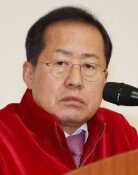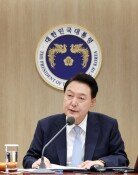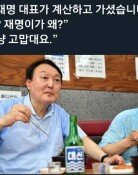Many tasks left by the Two-Kim era
The two former South Korean Presidents Kim Young-sam and Kim Dae-jung, often referred to as the two Kims, have made major contributions to the countrys transition to democracy but also left many lasting problems. Koreas severe political regionalism, whose roots lie in the Park Chung-hee administration, was worsened after the two Kims split during the 1987 presidential election campaigns. The sharp political divide between the Yeongnam region (the countrys southeastern region) and the Honam region (the countrys southwestern region) is repeatedly demonstrated in every election. The conservative Lee Myung-bak and Park Geun-hye administrations were supported overwhelmingly by the Yeongnam region while Mr. Roh received a disproportionate support by the Honam area.
Regionalism distorts the election process by making political parties focus more on candidate nomination than the actual election, and fuels conflicts within the political parties. Hopes for overcoming the deep-rooted regionalism was seen in the latest general election. Saenuri lawmaker Lee Jung-hyun was elected in South Jeolla Province, which belongs to the Honam region, while opposition lawmaker Kim Bu-gyeom also performed relatively well in Daegu, a traditionally conservative region. However, most politicians still rely on their regional base in order to win elections. Instead of taking an initiative in fighting regionalism, President Park Geun-hye is backing up her secretaries and ministers to run in Daegu City in North Gyeongsang Province and Gangnam Ward in Seoul, where winning is guaranteed just by getting nominated by the ruling party. Former lawmaker Chun Jung-bae is also pushing the establishment of a new party based on his hometown.
South Koreas political parties rampant practice of excessively depending on factions is the vestige of the so-called Two-Kim era." The two former presidents sustained the party structure they had used to fight authoritarian regimes even after achieving democracy. They neither let go of the right to nominate National Assembly members, nor eradicate political sectarianism. As a result of missing the appropriate timing of a political reform, Koreas politics is still struggling to build a true leadership model based on trust by its people.
Corruption had continued to take place even during Koreas two earliest democratic governments. The two Kims did not seem to understand that democratization is not simply ending dictatorship but a fundamental transition from a top-down society to a bottom-up one. Last years Sewol ferry disaster was partly caused by not having our society completely wean from the legacies of military regimes and rapid industrialization. Our early democracy movements had clear limits in that they failed to forge the rule of autonomy that can replace the control by the state. They failed to break the strong connections between the economic and political circles in our society.
It seems absurd to discuss reunification when we have yet to overcome political regionalism within our own country. How can we expect a renewed leadership when political exclusivism remains? Without addressing this malpractice, Korea will not be able to become a truly advanced nation. Of course we should commend the great accomplishments of the two former democratic leaders but at the same time we should more objectively evaluate their shortfalls for our future reference.
Headline News
- Israel prepares for retaliation against Iran
- Samsung reclaims top spot, surpassing Apple in smartphone market
- 77% of Koreans in 20s and 30s are 'Kangaroo Tribe' due to job crisis
- KBO referees embroiled in controversy over ABS decision concealment
- Inflation, oil price surge put double shock on global economy







